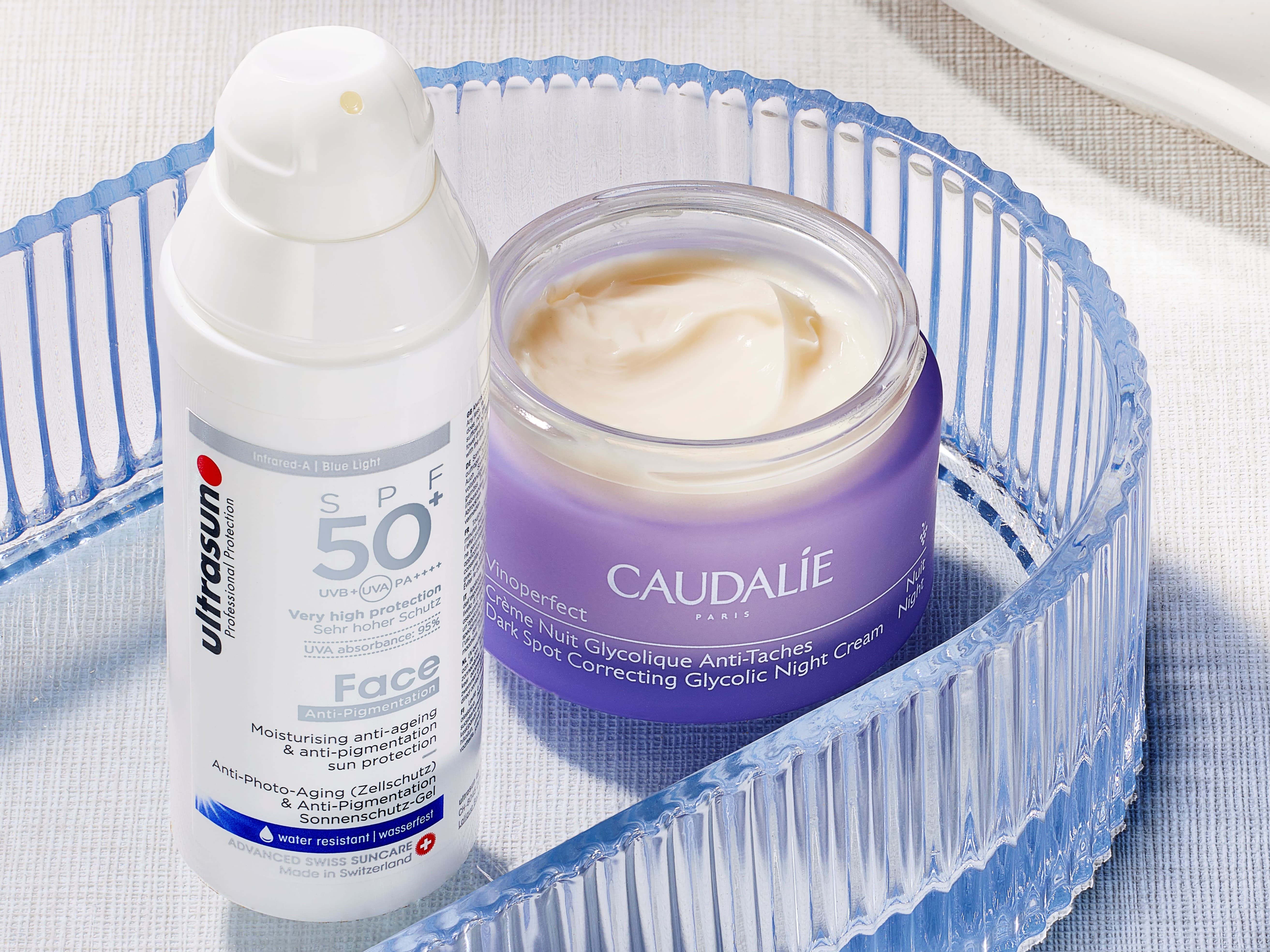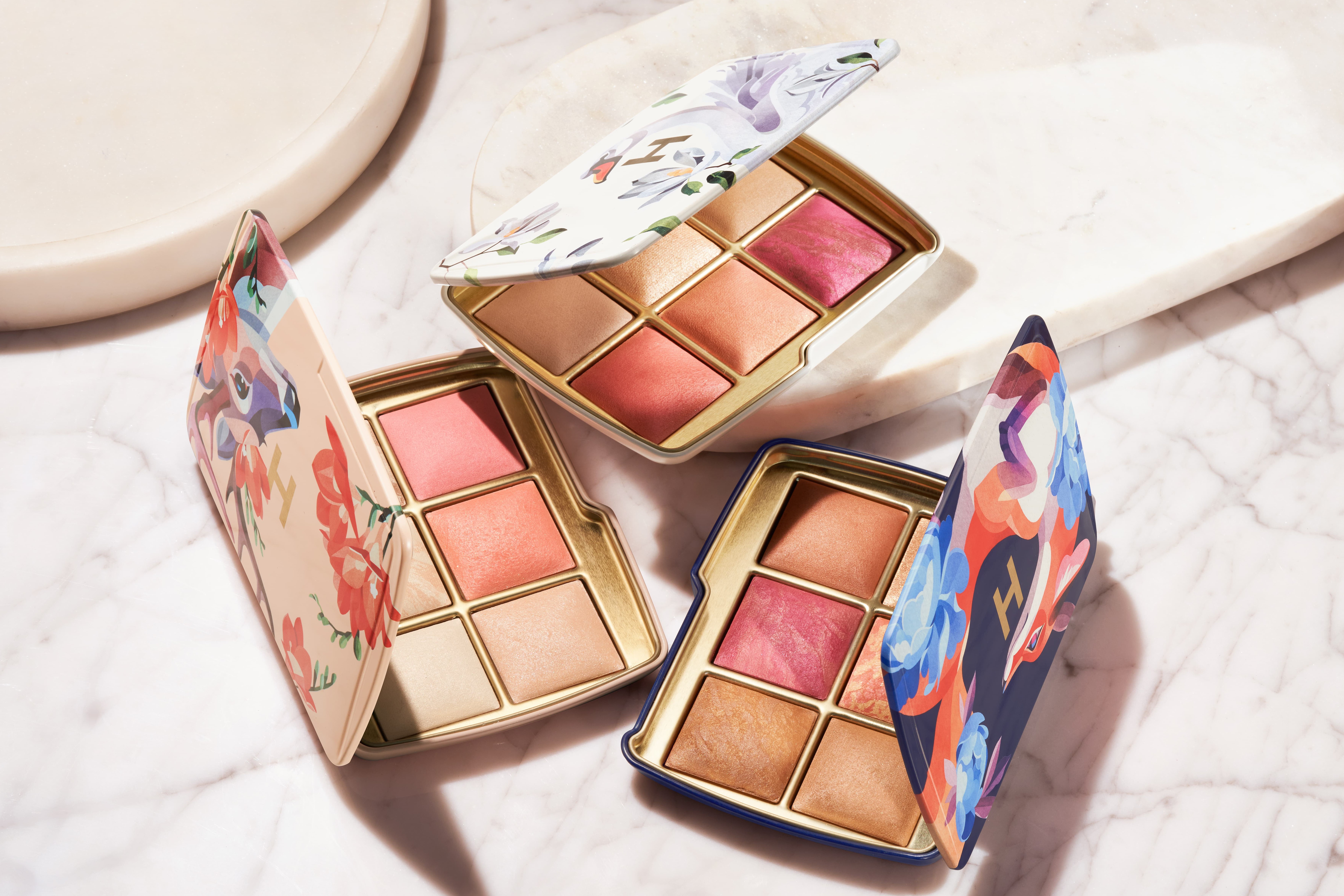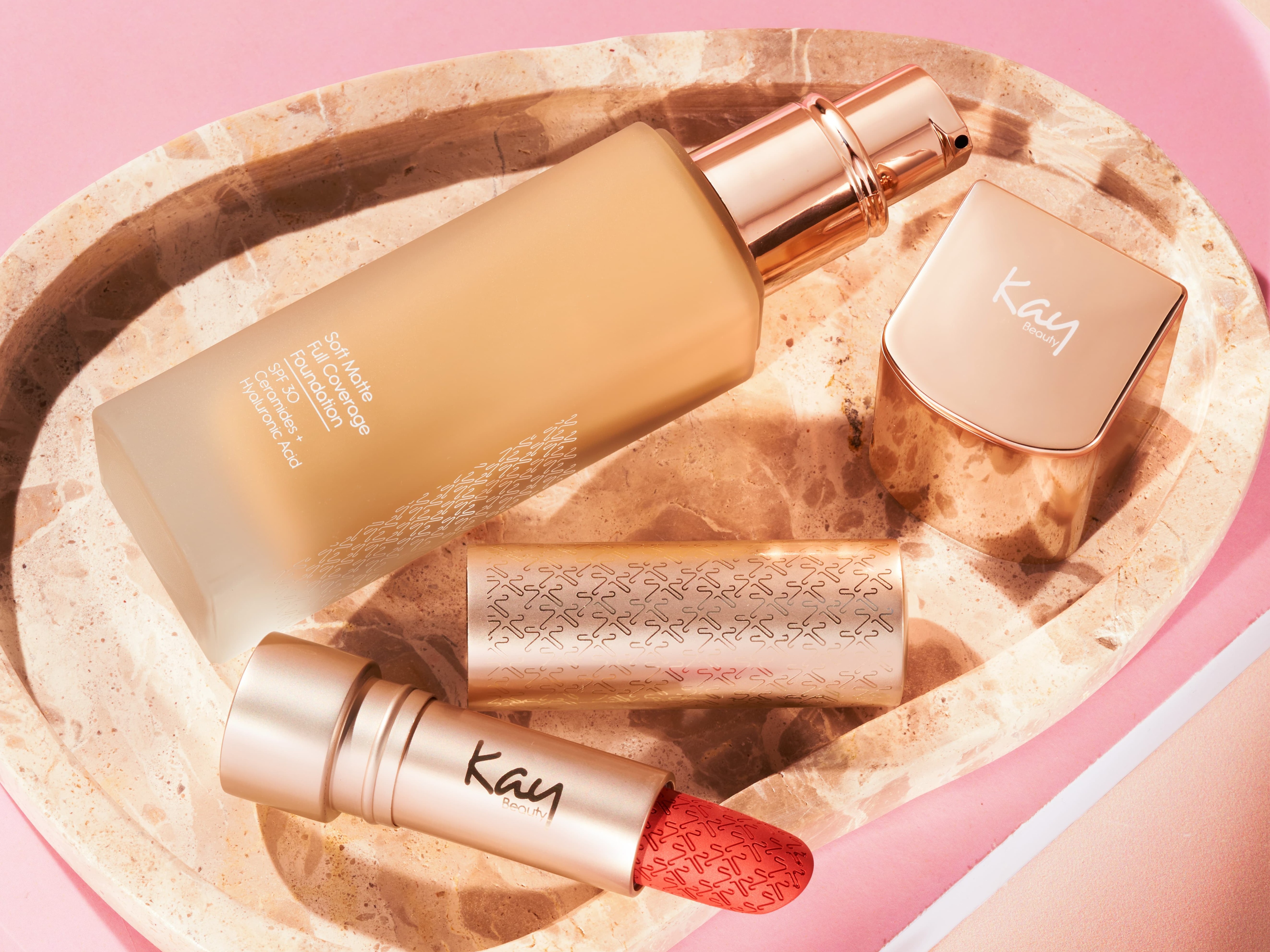How To Get Rid Of Pigmentation

Instead, she believes that the reason it’s gone mainstream as a skincare topic is because more people are asking for advice on how to treat it. “Hyperpigmentation can take many forms, from solar lentigo (sun spots) to melasma to post-inflammatory hyperpigmentation,” says Dr Shotter. “I think education nowadays is better, so people realise they have options to address these and so are more likely to seek out help.”
If you too are looking to treat a sudden surge in spots, and let's be real, who wants their face to resemble a dot-to-dot puzzle, then you’ve come to the right place. Read on for an expert guide on how to treat hyperpigmentation.
What is hyperpigmentation?
“Hyperpigmentation is caused when excess melanin is produced in your skin by the melanocyte cells. The most common reason for this is your skin’s response to UV exposure. Hormones can also play a role, especially in women during pregnancy. There are also some medications which can cause hyperpigmentation,” explains Dr Shotter.
Hyperpigmentation can appear anywhere on your body and takes the form of little patches of deeper toned skin, meaning that your skin tone might appear uneven. Unsurprisingly, the face is a very common area for hyperpigmentation as it receives the most exposure to the sun. It's a skincare concern that affects all ethnicities but is especially prevalent in those with darker skin tones.
What causes hyperpigmentation?
First and foremost, what does hyperpigmentation look like? Pigmented skin noticeably contrasts with the surrounding area, and its onset can be attributed to various factors. While certain behaviours, like being lax with your SPF application, contribute to its development, others, such as genetic predisposition or hormonal fluctuations, make it trickier to control.
Acne scarring or PIH
This type of hyperpigmentation is also known as PIH (post-inflammatory hyperpigmentation) and it often appears as the result of skin injury or an inflammatory skin condition. Think acne, chicken pox, dermatitis burns and even insect bites. These dark spots occur due to an overproduction of melanin as your skin goes into healing mode. While they vary in intensity and may fade over time, often it requires targeted skincare treatments to help ease its appearance effectively.
Too much sun exposure without SPF
Often dubbed sun spots or solar lentigines, this type of hyperpigmentation emerges when your skin's melanocytes, the colour-producing cells, go into overdrive in response to UV rays. These sun-induced spots, while varying in size and intensity, tend to favour the most sun-kissed areas: our faces, hands, arms, and décolletage. They’re likely to appear alongside other signs of photodamage, such as textural changes to the skin including lines or wrinkles.
Genetics
Manifesting as light to dark brown patches on areas including your forehead, cheeks, chin, and upper lip, this condition tends to be symmetrical. The discoloration may reside within your epidermis (your skin's upper layer), the dermis (lower layer), or a combination of the two. This type of pigmentation also stands as one of the prevalent skin issues encountered by women of colour, attributable to their heightened production of melanocytes, the pigment-producing cells.
Hormonal changes
Referred to as melasma, this condition can also be hormonally induced and is closely associated with life changes such as pregnancy, menopause, and the use of synthetic hormones through contraceptives. Sun exposure exacerbates melasma, intensifying its pigmentation and making it more of a challenge to treat.
Are some people more prone to hyperpigmentation than others?
Yes, some are more prone to hyperpigmentation that others. “Melasma is partially made worse by the hormone oestrogen, and consequently rates of melasma are significantly higher in women than in men. Both men and women are equally prone to developing sun spots,” says Dr Shotter. “Hyperpigmentation is also a very common concern in darker skin types, with post-inflammatory hyperpigmentation a significant risk in this demographic and it being one of the most reported ageing concerns.”
How to treat hyperpigmentation?
“Prevention is always better than cure, so wearing a sunscreen and practicing sun avoidance if you’re prone to hyperpigmentation is your best bet,” advises Dr Shotter. “‘Topical skincare can also very helpful when treating hyperpigmentation and there are both prescription and non-prescription options. When it comes to in clinic treatments, the mainstay are lasers and chemical peels.”
“Both can have great results and can be tailored to an individual depending on their skin type, severity of their hyperpigmentation and tolerance for downtime,” Dr Shotter adds. Want to know how to cover hyperpigmentation? A full coverage foundation or concealer will help alongside skincare that works to fade it.
Best skincare ingredients to treat hyperpigmentation
Below is a guide to widely use skincare ingredients for hyperpigmentation:
• Alpha hydroxy acids (AHAs): Including glycolic acid and lactic acid, AHAs exfoliate the skin, helping to fade dark spots and improve overall skin texture. A Space NK team favourite is Caudalie Vinoperfect Dark Spot Correcting Glycolic Night Cream, £27.30 that works with your skin’s overnight repair process.
• Vitamin C: This potent antioxidant helps to brighten your skin and inhibit melanin production, reducing the appearance of hyperpigmentation over time. Medik8 C-Tetra Lipid C Radiance Serum, £42.00 is perfect for those who are new to vitamin C.
• Retinoids: Does retinol help with hyperpigmentation? Indeed it does, alongside prescription-strength retinoids like tretinoin, derivatives of vitamin A promote cell turnover and help to fade dark spots. Skin Rocks Retinoid 1 - Vitamin A Face Serum, £65.00 is formulated with a gentle beginner strength but is still powerful enough to fade stubborn marks.
• Niacinamide (vitamin B3): Known for its anti-inflammatory and skin-brightening properties, niacinamide can help reduce the appearance of hyperpigmentation and even out skin tone. Try Paula's Choice Clinical Niacinamide 20% Treatment, £52.00.
• Kojic acid: Derived from fungi, kojic acid is known for its skin-lightening properties and can be effective in treating hyperpigmentation. Find this hard working ingredient in .
• Azelaic acid: Effective in treating hyperpigmentation and acne, azelaic acid works by inhibiting melanin production and reducing inflammation in the skin. The Ordinary Azelaic Acid Suspension 10%, £11.10.
• Tranexamic acid: A newer ingredient in skincare, tranexamic acid helps to inhibit melanin production and reduce the appearance of hyperpigmentation, particularly in melasma. Find it in Dermalogica Liquid Peelfoliant, £65.00 along with AHAs, BHA and PHA.
When using these ingredients for hyperpigmentation, it’s essential to follow the instructions carefully and use sunscreen daily, as some of them can increase sun sensitivity. Additionally, consistency is key, as it may take several weeks or even months to see significant results when using skincare for hyperpigmentation. Consulting with a dermatologist can also provide personalised recommendations and treatment options tailored to your specific skin concern.
Skincare devices and tools to treat hyperpigmentation
“There aren’t many at home light tools that are powerful enough to make a tangible difference to hyperpigmentation,” reveals Dr Sophie Shotter. “However, used regularly alongside topical skincare, they can potentially be helpful.”
Professional treatments to get rid of hyperpigmentation
When it comes to best professional treatments for hyperpigmentation, these are the most effective solutions.
Chemical peels: Chemical peels involve the application of a chemical solution to exfoliate the skin's top layers, promoting cell turnover and fading hyperpigmentation. We recommend EverySkin's The All Rounder Peel, which is a pumpkin-based peel expertly tailored to suit your skin to help ease pigmentation and decongestion and boost hydration. It's available at Space NK Battersea and Duke of York stores and you can book here.
Laser therapy: Various laser treatments, such as intense pulsed light (IPL) and fractional laser therapy, target pigmented areas to break up melanin and stimulate collagen production for more even skin tone.
Microdermabrasion: This procedure utilises a minimally abrasive instrument to gently remove the outer layer of your skin, reducing the appearance of hyperpigmentation and smoothing out skin texture.
How can I prevent hyperpigmentation?
Wear a sunscreen with factor 50 protection and broad-spectrum UVA coverage every single day, whether it’s summer or winter. If you’re in direct sunlight or on holiday make sure you regularly reapply your sun protection. Not only does Ultrasun Face SPF50+ Anti-Pigmentation, £32.00 protect skin but the formula helps to target skin pigmentation thanks to the inclusion of illumiscin, and asyntra SL, which also help to prevent further pigmentation.
Final thoughts on how to get rid of hyperpigmentation
In the quest for a luminous, even complexion, combating hyperpigmentation demands a inclusive strategy. A curated skincare routine that features powerhouse ingredients like vitamin C, niacinamide, and AHAs, will help to accelerate skin renewal and fade discoloration.
Consulting with a trusted dermatologist to determine the most effective professional treatments, whether it be chemical peels laser therapy can help make the process quicker. Finally, embracing the daily ritual of sun protection is a fail-safe way to prevent dark spots in the first place.
Read More
• The Best Cleansers for Sensitive Skin• The Best Retinol Eye Creams • The Best Vitamin C Serums and Creams
• How does Niacinamide Skincare Work? • The Skincare Ingredients to Plump Your Skin Overtime






